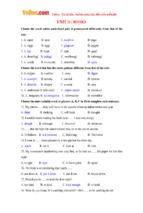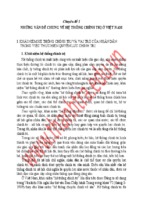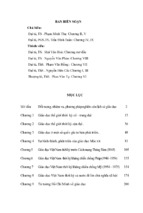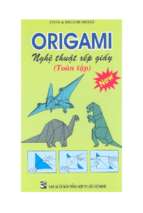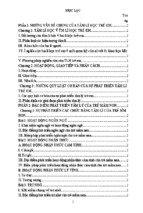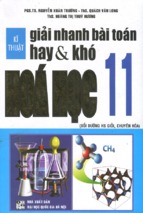Evolve your brain the science changing your mind (Joe Dispenza, DC)
The Science of Changing Your Mind
JOE DISPENZA, D.C.
Health Communications, Inc.
Deerfield Beach, Florida
www.hcibooks.com
The content of this book is published for educational and informational purposes
only. The content of this book should not be used for the diagnosis or treatment of
any condition or disease. The case histories presented are provided for illustrative
purposes only. No express or implied guarantee of results is made. If you are currently being treated by a physician or other healthcare practitioner for any condition
or disease, consult with that provider prior to changing or modifying any treatment
program.
Library of Congress Cataloging-in-Publication Data
is available through the Library of Congress.
© 2007 Joe Dispenza, D.C.
ISBN-13: 978-0-7573-0480-4
ISBN-lO: 0-7573-0480-X
All rights reserved. Printed in the United States of America. No part of this publication may be reproduced, stored in a retrieval system, or transmitted in any form or
by any means, electronic, mechanical, photocopying, recording, or otherwise, without the written permission of the publisher.
HCI, its logos and marks are trademarks of Health Communications, Inc.
Publisher: Health Communications, Inc.
3201 S.w. 15th Street
Deerfield Beach, FL 33442-8190
Cover design by Larissa Hise Henoch
Interior book design and formatting by Lawna Patterson Oldfield
Interior illustrations by Larissa Hise Henoch
FOR JACE, GIANNA,
AND SHENARA
CONTENTS
ACKNOWLEDGMENTS ....................................................................................... xi
FOREWORD BY AMIT GOSWAMI, PH.D ................................................................... xv
CHAPTER ONE: Beginnings .............................................................................. 1
CHAPTER Two: On the Back of a Giant... .................................................... .31
CHAPTER THREE: Neurons and the Nervous System:
Traveling the Original Information Superhighway .................................. 73
CHAPTER FOUR: Our Three Brains and More ............................................. 103
CHAPTER FIVE: Hardwired by Nature, Changeable by Nurture ................ 145
CHAPTER SIX: Neuroplasticity: How Knowledge and
Experience Change or Evolve the Brain ................................................. 179
CHAPTER SEVEN: Putting Knowledge and Experience into Practice ......... 223
CHAPTER EIGHT: The Chemistry of Survival ............................................. .251
CHAPTER NINE: The Chemistry of Emotional Addiction .......................... 295
CHAPTER TEN: Taking Control: The Frontal Lobe in Thought
and in Action ............................................................................................ 337
CHAPTER ELEVEN: The Art and Science of Mental Rehearsal .................... 381
ix
x
CHAPTER TWELVE:
CONTENTS
Evolving Your Being .................................................... .419
Epilogue: A Quantum Change .................................................................... .469
Notes .............................................................................................................. 479
Index .............................................................................................................. 493
ACKNOWLEDGMENTS
.,t~" J ::0: ;::~~:: ~;t;::n:n~h::::n:7~T~:::;:;~~:e'~::::'
.".,
"" There are moments when we feel truly inspired and uplifted, because
we have made some progress in climbing to a new level to see a better view. In
the next moment, when we see that there are bigger obstacles to overcome, we
wonder if we even made a difference and if our efforts were really worth it. Like
the birthing process, creation comes with labor pains, complications, nausea,
fatigue, sleepless nights, and even woeful moments of thinking about the future.
Questions lurk about our personal abilities, what we know, what we don't know,
who our critics are, who we are doing this for anyway, and why. I have had such
moments in writing this book.
And yet, it is almost natural that we fret with such encumbrances, because
somewhere inside us, we know that the only terrain we are overcoming is our limited view of ourselves. It's a process, and most certainly, there are speed bumps
along the way. I must say that this book has been a great and wonderful teacher for
me. I am different today because I continued on in spite of the many reasons to
stop. I understand better now why I wrote this book. My sole purpose and hopeful
intentions were to contribute toward helping people change their lives. If this book
makes a difference in even one person's life, then the whole process was worth it.
Evolve Your Brain was not written primarily for the scientist, the researcher, or the
academic, but for the average person who wants to understand that science supports our ability to change, and that we, as human beings, have great potential.
xi
ACKNOWLEDGMENTS
xii
I certainly do not know everything there is to know about the brain. What
I have come to learn, to experience, to research, and to personally conclude are
only doorways to greater understandings. Some might say to me, why didn't you
discuss this topic or that topic in the book? Simply, I have chosen to keep this
body of work about the science of changing our mind and what implications
this has for our health and our well-being. There are many more subjects I could
have discussed about energy, mind, quantum physics, and our greater abilities
that would make this book too broad to be useful. My epilogue suggests greater
applications.
I do want to acknowledge several people who have supported, influenced,
and inspired me to complete the book. First, I want to thank my publishers at
HCI, Peter Vegso and Tom Sand, who believed in me. A special thank you to my
editor, Michele Matrisciani. I also want to express my appreciation to Carol
Rosenberg for being such a thorough managing editor and to Dawn Von Strolley
Grove and Lawna Patterson Oldfield for their production expertise.
To Tere Stouffer, my copy editor, who helped me with perspective. Also, to
Sara Steinberg, my content/copy editor, who taught me about the tortoise and
the hare and who showed such caring and love ... I am grateful. To Gary Brozek,
your contribution to my work is truly appreciated. My graphic artist Larissa
Hise Henoch showed her true talent in this book.
I also want to give my acknowledgments to my staff for keeping up with my
pace. Thanks to Bill Harrell, D.c., Jackie Hobbs, Diane Baker, Patty Kerr, Charlie
Davidson, and Brenda Surerus. Your sincerity is invaluable to me. Special gratitude is given to Gabrielle Sagona for her assistance, encouragement, and fabulous
energy. Thank you for everything. To Joanne Twining, Ph.D., I am expanded by
your skills, your knowledge, and your patience. To Will Arntz, James Capezio, and
Rebecca Capezio for their important feedback with the manuscript. To Marjorie
Layden, Henry Schimberg, Linda Evans, Anne Marie Bennstrom, Ken Weiss,
Betsy Chasse, and Gordon J. Grobelny, D.C., for true encouragement and support. My immense appreciation goes to Paul Burns, J.D., D.C., who helped me in
innumerable ways.
I also want to give thanks to JZ Knight for giving up her life to help humanity.
ACKNOWLEDGMENTS
xiii
To Ramtha, who inspired me to write this book and from whom I have learned
enough to think about for a hundred lifetimes. To the students at RSE, who live
their lives with a passion for adventure and a love of God. I am always inspired
by their dedication to the great work.
My gratitude to Amit Goswami, Ph.D., for his brilliant intellectual mind,
true compassion, and willingness to be an individual. You are a true maverick.
Thank you as well to Nick Pappas, M.D., Margie Pappas, R.N., M.S., and John
Kucharczyk, Ph.D., who played an important role in informing me about the
brain, mind, and body.
I want to personally thank John and Katina Dispenza and my mother, Fran
Dispenza, for having strong shoulders to lean on. And finally, a profound thank
you should be written across the sky to my lovely lady Roberta Brittingham, for
naturally being and living everything that I have tried to explain in this book. I
am always inspired by your humility and greatness.
FOREWORD
\ I~.~" .~"
~i
'~'i";' .(;;;c;;;
.
ince you are holding this book in your hand, you may already be
aware of the paradigm shift that is going on in science. In the old paradigm, your consciousness-you-is regarded as an epiphenomenon
of your brain. In the new paradigm, your consciousness is the ground of being
and your brain is the epiphenomenon. Feel better? Then you are ready to reap
the benefit of this book.
If consciousness is the primary ground and brain is secondary, then it is
natural to ask how to use the brain in an optimal fashion to fulftll the purpose
of consciousness and its evolution. The new paradigm research has been going
on for a while, but this is the first book that addresses this question and brilliantly guides you toward that end. Truly, Dr. Joe Dispenza has written a user's
manual par excellence for the brain, from the new primacy-of-consciousness
perspective.
Dr. Dispenza, not being a quantum physicist, does keep the primacy of consciousness implicit, not explicit, until the very end of the book. Because it
requires quantum physics to see the primacy of consciousness explicitly, it may
be useful for you, dear reader, to receive a little background information from a
quantum physicist; hence, this foreword.
To go back to the beginning of the new paradigm revolution, quantum
physics has a fundamental interpretational problem. It depicts objects not as
determined "things," but as waves of possibility. How do these possibilities
become actual "things" of our experience when we observe or "measure" them?
xv
FOREWORD
xvi
If you think that our brain-being the site of us, or our consciousness-has the
capacity to change possibility into actuality, think again. According to quantum
physics, the brain itself consists of quantum possibilities before we measure it,
before we observe with it. If we, our consciousness, were a brain product, we
would be possibilities as well, and our "coupling" with the object would change
neither the object nor us (our brain) from possibility to actuality. Face it!
Possibility coupled to possibility only makes a bigger possibility.
The paradox only thickens if you think of yourself dualistically-you as a
nonmaterial dual entity, not bound by quantum laws and separate from your
brain. But if you are nonmaterial, then how do you interact with your brain,
with which you have not a thing in common? This is dualism, a philosophy
intractable as science.
There is a third way of thinking, and this one leads to a paradigm shift. Your
consciousness is the primary fabric of reality, and matter (including the brain
and the object you are observing) exists within this fabric as quantum possibilities. Your observation consists of choosing from the possibilities the one facet
that becomes the actuality of your experience. Physicists call this process the col-
lapse of the quantum possibility wave.
Once you recognize that your consciousness is not your brain but transcends it, once you recognize that you have the power to choose among possibilities, you are ready to act on Joe Dispenza's ideas and suggestions. It will help
additionally to know that the "you" that chooses is a cosmic you, a state of consciousness available to you in non-ordinary situations. You reach such states
when you have a creative insight. In those times, you are ready to make changes
in your brain circuits. Dr. Dispenza shows you how.
There is another reason that I think Dr. Joe Dispenza's book is a welcome
addition to the growing literature of the new paradigm of science: he emphasizes the importance of paying attention to emotions. You may already have
heard the phrase emotional intelligence. What does that mean? First of all, it
means that you don't have to fall prey to your emotions. You do because you are
attached to them; or as Joe Dispenza would say, "You are attached to the brain
circuits connected with the emotions."
FOREWORD
xvii
There is a story that when Albert Einstein was leaving Nazi Germany for
America, his wife became very concerned that she had to leave behind so much
furniture and other household items. "I am attached to them;' she complained
to a friend. To this, Einstein joked, "But my dear, they are not attached to you."
This is the thing. Emotions are not attached to you; because you are not
your brain, you don't have to identify with your existing brain circuits.
With regard to the concept of emotional intelligence, some writers are a
little confused. They talk about emotional intelligence and how you can develop
it, but they also insist that you are nothing but the brain. The problem in thinking that way is that the brain is already set up in a hierarchical relationship with
the emotions. Emotional intelligence is possible only if you can change this
existing hierarchy, only if you are not part of that hierarchy. Joe Dispenza recognizes the primacy of you, your consciousness, over your brain, and by doing so,
he gives you some useful advice about emotional intelligence, about how to
change your existing brain circuits and hierarchies.
Gandhi's wife was once asked by a journalist how Gandhi could accomplish
so much. "Simple;' said the wife. "Gandhi is congruent in regards to his speech,
thought, and action."
All of us want to be good accomplishers; we want to fulftll the meaning and
purpose of our lives. The crucial challenge is how to achieve synchrony between
speech, thought, and action. Put another way, the challenge is to integrate
thought and emotion. I believe that the evolution of consciousness demands
this from us right now. Recognizing this, Joe Dispenza has provided indispensable knowledge on how you can integrate your feelings and thinking.
1 met Dr. Joe for the first time at a What the Bleep Do We Know!? conference.
This movie, as you may know, is about a young woman who is struggling to
change her emotional behavior. In a scene of catharsis (played beautifully by
actress Marlee Matlin), the woman looks at her image in a mirror and says, "I
hate you:' In that moment she frees herself to choose among quantum possibilities of change. She goes on to transform her brain circuits, creating a new state
of being and a new life.
You can change your brain circuits, too. You have that power of quantum
xviii
FOREWORD
choice. We have always had the tools to do this, but only now have we become
aware of how to use them. Dr. Joe Dispenza's book, Evolve Your Brain, will help
you use your power to choose and to change. Read this book, use its ideas in
your life, and realize your potential.
-Amit Goswami, Ph.D.
Professor of Physics, University of Oregon,
and author of The Self-Aware Universe
CHAPTER ONE
BEGINNINGS
But strange that I was not told
That the brain can hold
In a tiny ivory cell
God's heaven or hell.
-OSCAR WILDE
invite you to have a single thought, any thought. Whether your
thought was related to a feeling of anger, sadness, inspiration, joy, or
even sexual arousal, you changed your body. You changed you. All
thoughts, whether they be "1 can't;' "1 can;' ''I'm not good enough;' or "1 love
you;' have similar measurable effects. As you sit casually reading this page, not
lifting a single finger, bear in mind that your body is undergoing a host of
dynamic changes. Triggered by your most recent thought, did you know that
suddenly, your pancreas and your adrenal glands are already busy secreting a few
new hormones? Like a sudden lightning storm, different areas of your brain just
surged with increased electrical current, releasing a mob of neurochemicals that
are too numerous to name. Your spleen and your thymus gland sent out a mass
e-mail to your immune system to make a few modifications. Several different
gastric juices started flowing. Your liver began processing enzymes that were
1
EVOLVE your BRAIN
2
not present moments before. Your heart rate fluctuated, your lungs altered
their stroke volume, and blood flow to the capillaries in your hands and feet
changed. All from just thinking one thought. You are that powerful.
But how are you capable of performing all of those actions? We can all intellectually understand that the brain can manage and regulate many diverse functions throughout the rest of the body, but how responsible are we for the job our
brain is doing as CEO of the body? Whether we like it or not, once a thought
happens in the brain, the rest is history. All of the bodily reactions that occur
from both our intentional or unintentional thinking unfold behind the scenes
of our awareness. When you come right down to it, it is startling to realize how
influential and extensive the effects of one or two conscious or unconscious
thoughts can be.
For example, is it possible that the seemingly unconscious thoughts that run
through our mind daily and repeatedly create a cascade of chemical reactions that
produce not only what we feel but also how we feel? Can we accept that the longterm effects of our habitual thinking just might be the cause of how our body
moves to a state of imbalance, or what we call disease? Is it likely, moment by
moment, that we train our body to be unhealthy by our repeated thoughts and
reactions? What if just by thinking, we cause our internal chemistry to be bumped
out of normal range so often that the body's self-regulation system eventually
redefines these abnormal states as normal, regular states? It's a subtle process, but
maybe we just never gave it that much attention until now. My wish is that this
book will ?ffer a few suggestions for managing your own internal universe.
Since we are on the subject of attention, now I want you to pay attention,
become aware, and listen. Can you hear the hum of the refrigerator? The sound
of a car passing by your home? A distant dog barking? How about the resonance
of your own heart beating? Just by shifting your attention in those moments,
you caused a power surge and voltage flux of electricity in millions of brain cells
right inside your own head. By choosing to modify your awareness, you changed
your brain. Not only did you change how your brain was working moments
before, but you changed how it will work in the next moment, and possibly for
the rest of your life.
BEGINNINGS
3
As you return your attention to these words on this page, you altered blood
flow to various parts of your brain. You also set off a cascade of impulses, rerouting and modifying electrical currents to different brain areas. On a microscopic
level, a multitude of diverse nerve cells ganged up chemically to "hold hands"
and communicate, in order to establish stronger long-term relationships with
each other. Because of your shift in attention, the shimmering three-dimensional web of intricate neurological tissue that is your brain is firing in new combinations and sequences. You did that of your own free will, by changing your
focus. You quite literally changed your mind.
As human beings, we have the natural ability to focus our awareness on anything. As we will learn, how and where we place our attention, what we place our
attention on, and for how long we place it ultimately defines us on a neurological level. If our awareness is so mobile, why is it so hard to keep our attention on
thoughts that might serve us? Right now, as you continue to concentrate and
read this page, you might have forgotten about the pain in your back, the disagreement you had with your boss earlier today, and even what gender you are.
It is where we place our attention and on what we place our attention that maps
the very course of our state of being.
For example, we can, in any given moment, think about a bitter memory
from our past that is only tattooed in the intimate folds of our gray matter and,
like magic, it comes to life. We also have the option of attending to future anxieties and worries that do not readily exist until they are conjured up by our own
mind. But to us, they are real. Our attention brings everything to life and makes
real what was previously unnoticed or unreal.
Believe it or not, according to neuroscience, placing our attention on pain
in the body makes pain exist, because the circuits in the brain that perceive pain
become electrically activated. If we then put our full awareness on something
other than pain, the brain circuits that process pain and bodily sensations can be
literally turned off-presto, the pain goes away. But when we look to see whether
the pain is gone for good, the corresponding brain circuits once again activate,
causing us to feel the discomfort return. And if these brain circuits repeatedly
fire, the connections between them become stronger. Thus by paying attention
4
EVOLVE your BRAIN
to pain on a daily basis, we are wiring ourselves neurologically to develop a more
acute awareness of pain perception, because the related brain circuits become
more enriched. Your own personal attention has that much of an effect on you.
This could be one explanation to how pain, and even memories from our distant past, characterize us. What we repeatedly think about and where we focus
our attention is what we neurologically become. Neuroscience finally understands that we can mold and shape the neurological framework of the self by the
repeated attention we give to anyone thing.
Everything that makes us up, the "you" and the "me"-our thoughts, our
dreams, our memories, our hopes, our feelings, our secret fantasies, our fears,
our skills, our habits, our pains, and our joys-is etched in the living latticework
of our 100 billion brain cells. By the time you have read this far in the book, you
have changed your brain permanently. If you learned even one bit of information, tiny brain cells have made new connections between them, and who you
are is altered. The images that these words created in your mind have left footprints in the vast, endless fields of neurological landscape that is the identity
called "you:' This is because the "you;' as a sentient being, is immersed and truly
exists in the interconnected electrical web of cellular brain tissue. How your
nerve cells are specifically arranged, or neurologically wired, based on what you
learn, what you remember, what you experience, what you envision for yourself,
what you do, and how you think about yourself, defines you as an individual.
You are a work in progress. The organization of brain cells that makes up
who you are is constantly in flux. Forget the notion that the brain is static, rigid,
and fixed. Instead, brain cells are continually remolded and reorganized by our
thoughts and experiences. Neurologically, we are repeatedly changed by the endless stimuli in the world. Instead of imagining nerve cells as solid, inflexible, tiny
sticks that are assembled together to make up your brain's gray matter, I invite
you to see them as dancing patterns of delicate electric fibers in an animated
web, connecting and disconnecting all the time. This is much closer to the truth
of who you are.
The fact that you can read and comprehend the words on this page is due
to the many interactions you have had throughout your life. Different people
BEGINNINGS
5
taught you, instructed you, and essentially changed your brain microscopically.
If you accept this notion that your brain is still changing as you read these pages
before you, you can easily see that your parents, teachers, neighbors, friends,
family, and culture have contributed to who you are presently. It is our senses,
through our diverse experiences, that write the story of who we are on the tablet
of our mind. Our mastery is being the fme conductor of this remarkable orchestra of brain and mind; and as we have just seen, we can direct the affairs of
mental activity.
Now, let's change your brain a little further. I want to teach you a new skill.
Here are the instructions: Look at your right hand. Touch your thumb to your
pinky finger, and then touch your thumb to your index finger. Next, touch your
thumb to your ring finger, and then touch your thumb to your middle finger.
Repeat the process until you can do it automatically. Now do it faster and make
your fingers move more rapidly without mistake. Within a few minutes of paying attention, you should be able to master the action.
To learn the finger movements well, you had to rise out of your resting state,
from relaxing and reading to a heightened state of conscious awareness.
Voluntarily, you perked up your brain a little; you increased your level of awareness by your intentional free will. To succeed in memorizing this skill, you also
had to increase your brain's level of energy. You turned up the dimmer switch to
the light bulb in your brain that is constantly on, and it got brighter. You became
motivated, and your choice to do this made your brain turn on.
Learning and performing the activity required you to amplify your level of
awareness. By increasing blood flow and electrical activity to different areas in
your brain, you could stay more present with what you were doing. You kept your
brain from wandering to any other thought so that you could learn a new action,
and that process took energy. You changed the way the arrangement of millions
of brain cells fired in diverse patterns. Your intentional act took will, focus, and
attention. The end result is that you are once again neurologically changed, not
only by thinking a thought but also by demonstrating an action or a new skill.
In a moment, I want you to close your eyes. This time, instead of physically
demonstrating the finger exercise, I want you to practice doing that same action
6
EVOLVE your BRAIN
in your mind. That is, remember what you did just moments before and mentally touch each finger the way I asked you to earlier: thumb to pinky finger,
thumb to index finger, thumb to ring finger, and thumb to middle finger.
Mentally rehearse the activity without physically doing it. Do it a few times in
your mind, and then open your eyes.
Did you notice that while you were practicing in your mind, your brain
seemed to imagine the entire sequence just as you actually did it? In fact, if you
paid full attention to what you were rehearsing in your mind's eye by focusing
on mentally practicing those finger actions, you fired the same set of nerve cells
in the same part of your brain as if you were actually doing them. In other
words, your brain did not know the difference between your doing the action or
your remembering how to do the action. The act of mental rehearsal is a powerful way you can grow and mold new circuits in your brain.
Recent studies in neuroscience demonstrate that we can change our brain
just by thinking. So ask yourself: What exactly do you spend most of your time
mentally rehearsing, thinking about, and finally demonstrating? Whether you
consciously or unconsciously fabricate your thoughts and actions, you are
always affirming and reaffirming your neurological self as "you." Keep in mind
that whatever you spend your time mentally attending to, that is what you are
and what you will become. My hope is that this book will help you to understand why you are the way you are, how you got this way, and what it takes to
change who you are through your intentional thoughts and actions.
You may ask at this point, What is it that allows us to voluntarily modify
how the brain works? Where does the "you" exist, and what allows you to turn
on and off different brain circuits that then make you aware or unaware? The
"you" I'm talking about lives in a part of the brain called the frontal lobe, and
without the frontal lobe, you are no longer "you." In evolution, the frontal lobe
has been the last part of the brain to develop, just behind the forehead and right
above the eyes. You hold the image of yourself in the frontal lobe, and what you
hold in this special place determines how you interact in the world and perceive
reality. The frontal lobe controls and regulates other, older parts of the brain.
The frontal lobe navigates your future, controls your behavior, dreams of new
BEGINNINGS
7
possibilities, and guides you throughout life. It is the seat of your conscience.
The frontal lobe is evolution's gift to you. This brain region is most adaptable to
change and is the means by which you evolve your thoughts and actions. My
desire is that this book helps you to use this newest, most recent part of your
brain's anatomy to reshape your brain and your destiny.
Evolution, Change, and Neuroplasticity
We humans have a unique capacity to change. It is via the frontal lobe that
we go beyond the preprogrammed behaviors that are genetically compartmentalized within the human brain, the recorded history of our species' past.
Because our frontal lobe is more evolved than that of any other species on earth,
we have tremendous adaptability, and with it come choice, intent, and full
awareness. We possess an advanced bit of biotechnology that allows us to learn
from our mistakes and shortcomings, to remember, and to modify our behavior
so that we can do a better job in life.
It is true that a lot of human behavior is genetically preset. All life forms are
preordained to be what they genetically express, and we must agree that a lot of
who we are as human beings is predetermined by our genes. Yet we are not condemned to live out our existence without contributing some form of an evolutionary gift to future generations. We can add to our species' progress here on
earth because unlike other species, we theoretically have the hardware to evolve
our actions in one lifetime. The new behaviors we demonstrate will provide new
experiences that should be encoded in our genes-both for now and for posterity. This leads us to consider: How many new experiences have we had lately?
The science of molecular biology is beginning to investigate the concept that,
given the right signals, our genes are as equally changeable as our brain cells. The
question is this: Can we provide the right type of stimulus to the cells of our
body, either chemically or neurologically, to unlock their gigantic library of
unused latent genetic information? In other words, by managing our thoughts
and reactions, can we intentionally make the right chemical elixir to drive the
brain and body from a constant state of stress to a state of regeneration and
EVOLVE your BRAIN
8
change? Can we escape from the limits of our biology and become more evolved
human beings? It is my intent to show you that both theoretically and practically,
there is a true biology to change-that is, by maintaining a change in your mind.
Is it possible for us to abandon the old model that implies that our genes create disease? Can we speculate beyond the most recent credo, which states that the
environment turns on the genes that create disease? Is it possible that by managing our own internal environment, independent of the external environment, we
can maintain or change our genes? Why is it that when two factory employees,
working side by side for 20 years, are exposed to the same carcinogenic chemical,
one manifests cancer, the other does not? Surely, there must be an element of
internal order at work in this situation, one that supersedes the continuous environmental exposure to harmful chemicals known to genetically alter tissues.
A growing body of knowledge points to the effects of stress on our bodies.
Living in stress is living in a primitive state of survival common to most species.
When we live in survival, we limit our evolution, because the chemicals of stress
will always drive our big-thinking brain to act equal to its chemical substrates.
In effect, we become more animal-like and less divine. The chemicals of stress
are the culprits that begin to alter our internal state and pull the trigger of cellular breakdown. In this book, we examine those effects on the body. It is the
redundancy not of acute stress but of chronic long-term stress that weakens our
bodies. My goal is to educate you about the effects of stress on the body, creating a level of self-awareness that causes you to stop and ask yourself, Is anyone
or anything really worth it?
So often it seems as if we cannot shake those internal states of emotional
turmoil. Our reliance on these chemical states drives us to experience confusion,
unhappiness, aggression, and even depression, to name a few. Why do we cling
to relationships and jobs that logically no longer work? Why does changing ourselves and our conditions in life seem so hard? There is something in us that
causes us to act this way. How do we manage to endure it day after day? If it is
the conditions of our jobs that we dislike so much, why don't we just find other
ones? If it is something in our personal life that causes us to suffer, why don't we
change it?
- Xem thêm -



